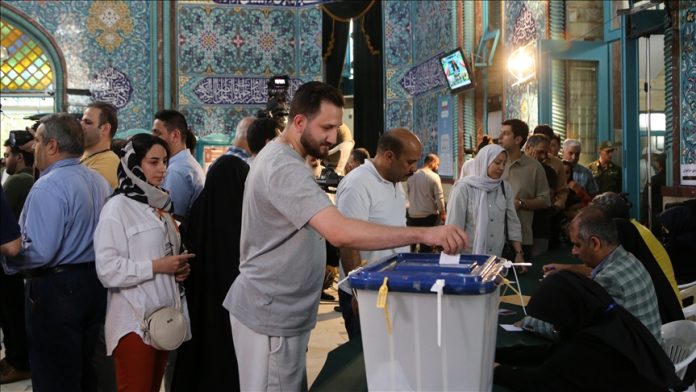The Iranian 14th presidential election officially ended after 18 hours of voting, highlighting the struggle between little-known reformer Masoud Pezeshkian and hardliner Saeed Jalili.
Four candidates, Mohammad Bagher Ghalibaf, Saeed Jalili, Masoud Pezeshkian and Mostafa Pourmohammadi, are vying for the presidency of the Islamic Republic of Iran. However, the initial election results gave no candidate an outright victory in Friday’s election, potentially paving the way for a run-off vote to replace the late president, Ebrahim Raisi.
64 million voters in Iran are eligible to vote in the election, most of them young, while 59.3 million people were eligible to vote in the 2021 presidential election. 58,640 polling stations set up across the country for these elections, more than 6,000 of which were located in Tehran. Outside the country, the Ministry of Foreign Affairs established 344 overseas polling stations for Iranians to exercise their right to vote, with the exception of Canada.
Iranian law requires the winner to receive more than 50 per cent of all votes cast. Otherwise, the top two candidates will advance to a second round a week later, on 5 July. According to preliminary results from the Interior Ministry of Iran, some 19 million votes have been counted so far.
Masoud Pezeshkian got 8.3 million, while Saeed Jalili got 7.18 million. Another candidate, parliament speaker Mohammad Bagher Ghalibaf, got about 2.67 million votes, while Shiite cleric Mostafa Pourmohammadi garnered more than 158,000 votes.
The vote came amid heightened tensions in the Middle East over Israel’s war with Hamas in the Gaza Strip. In April, Iran launched its first direct attack on Israel over the war in the Gaza Strip, which has left nearly 38,000 Palestinians dead.
